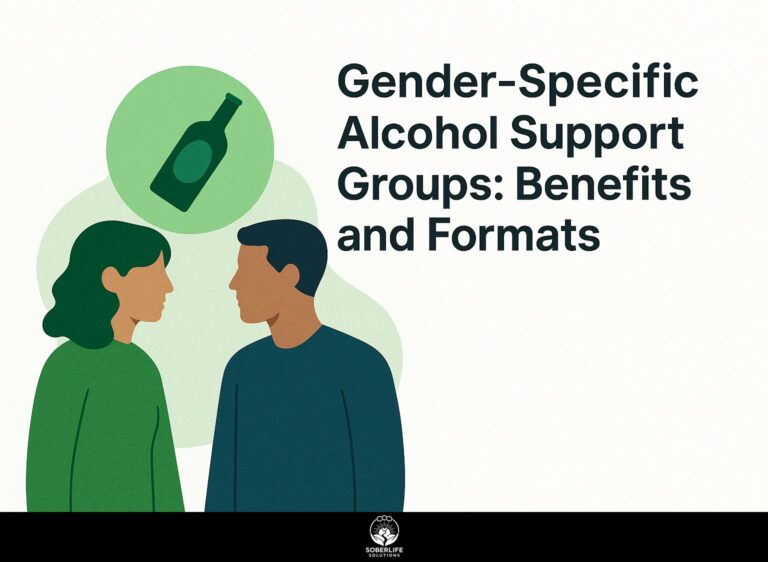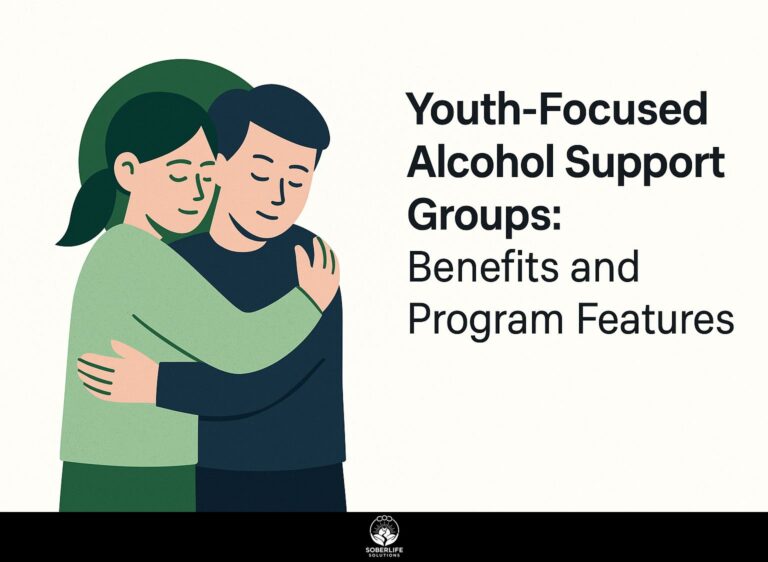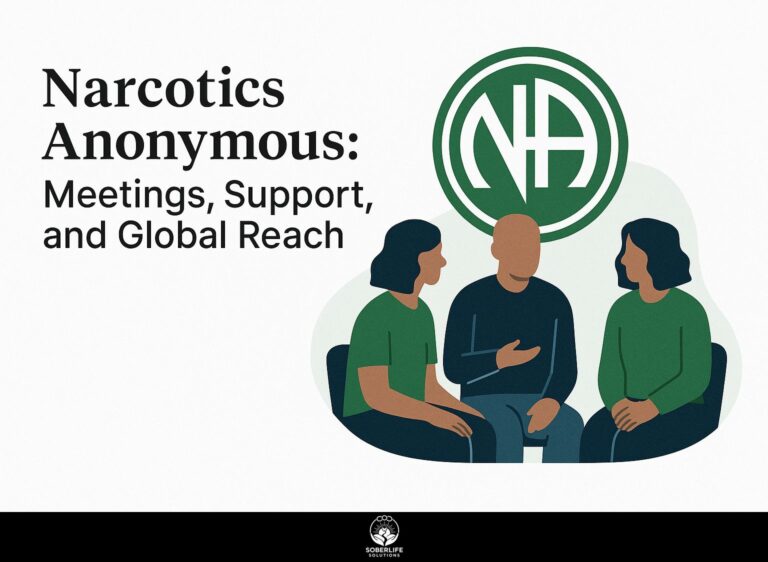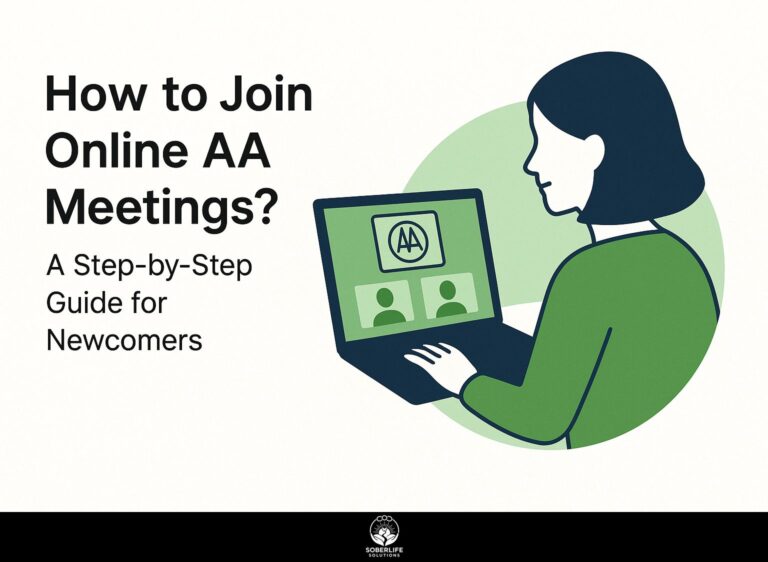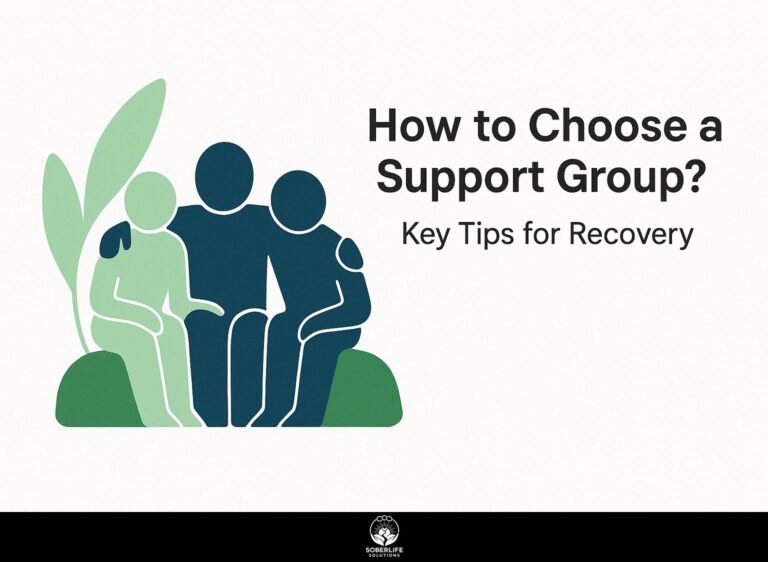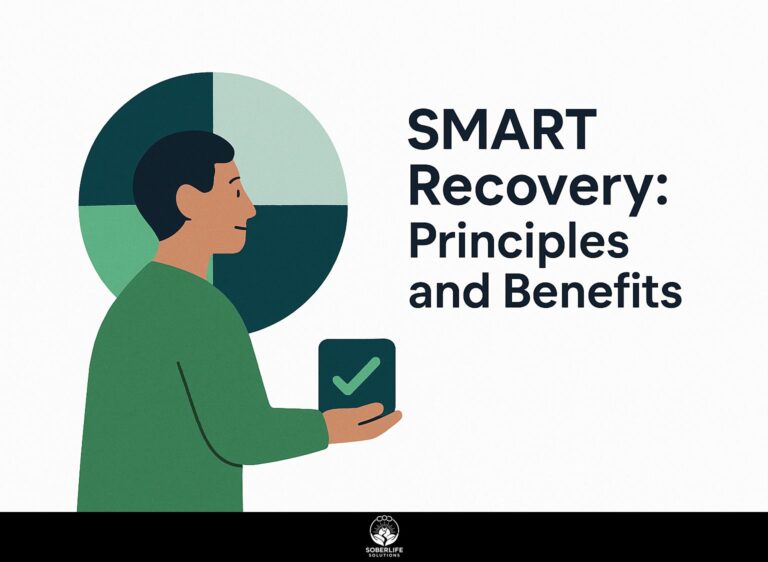LGBTQ+ Inclusive Alcohol Support Groups: Importance and Benefits
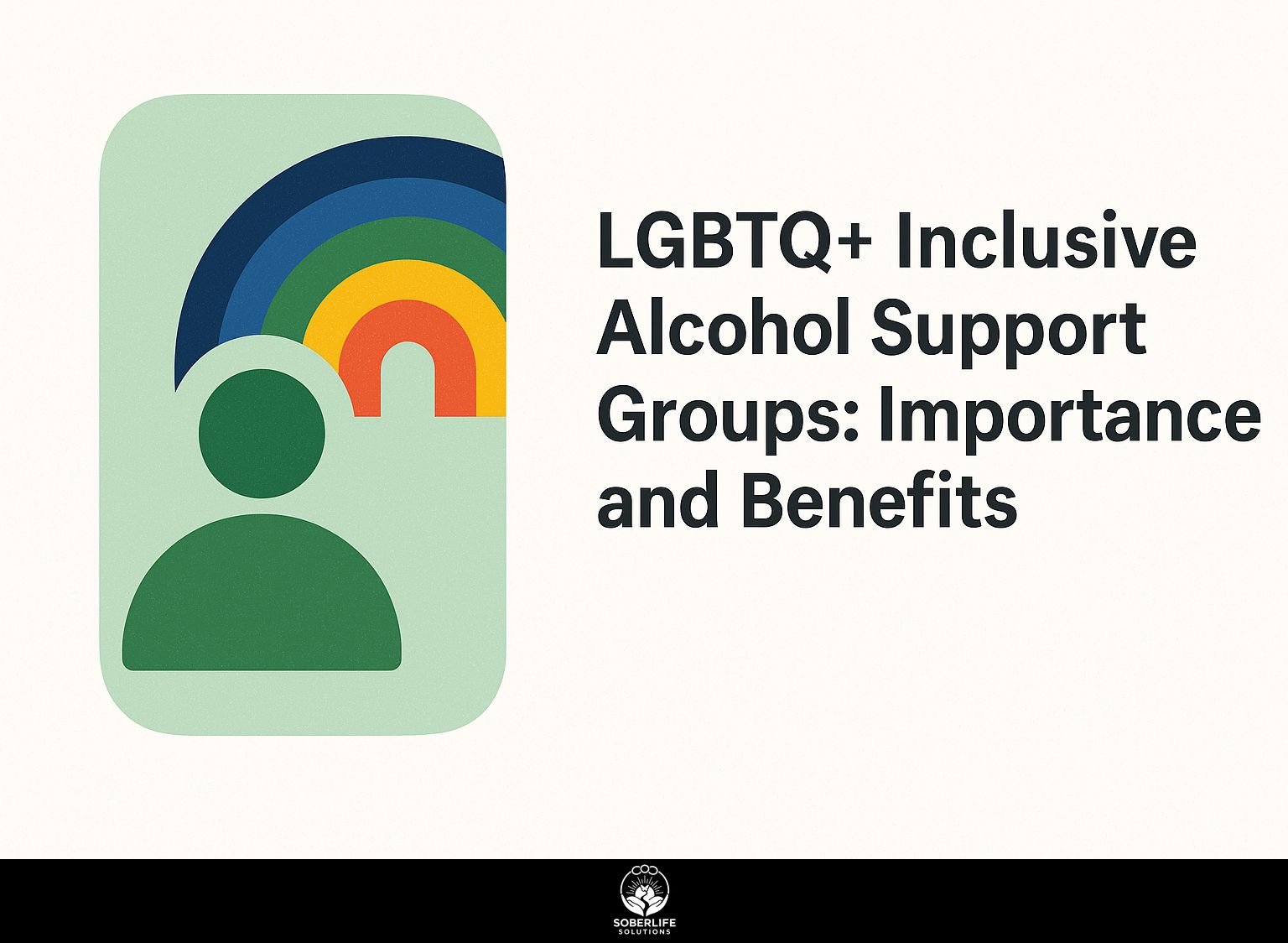
In a world where sexual and gender minority individuals encounter specific challenges, LGBTQ+ friendly alcohol support groups provide important social support for those dealing with substance use disorders. Traditional programs, like Alcoholics Anonymous and 12-Step programs, may not fully address the specific needs of these communities. Knowing why inclusivity matters, as shown in The PRIDE Study, helps us benefit from recovery methods designed for individual needs. Join us to learn how these welcoming places help with recovery and building relationships.
Key Takeaways:
The LGBTQ+ Community’s Distinct Challenges
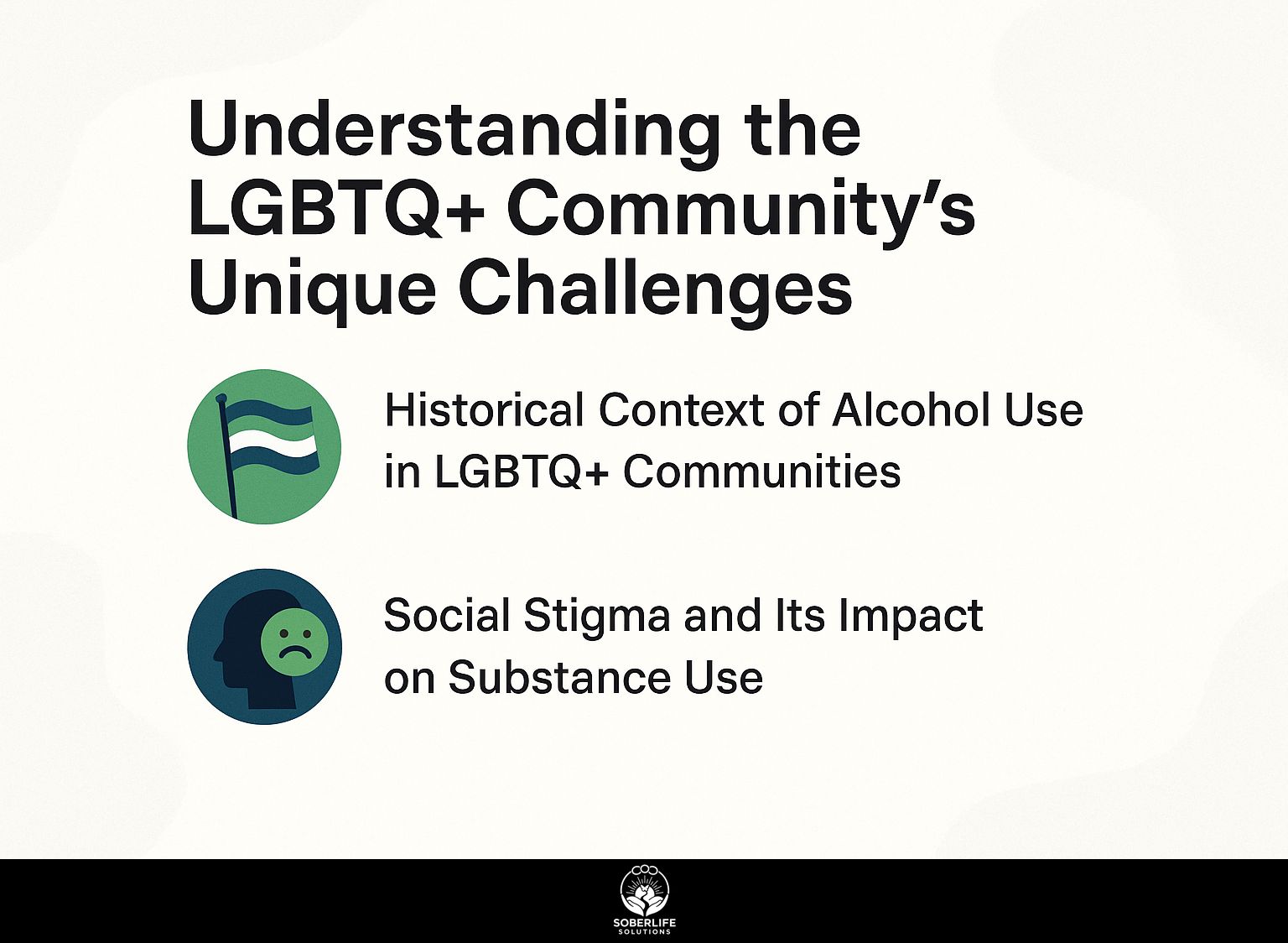
The LGBTQ+ community encounters many difficulties that lead to increased substance use disorders, such as discrimination, social stigma, and limited access to support services. According to research findings by The Trevor Project, these challenges are significant contributors to both substance use and suicide risk, particularly among LGBTQ youth.
Historical Context of Alcohol Use in LGBTQ+ Communities
Historically, alcohol has served as a coping mechanism for many in LGBTQ+ communities, offering temporary relief from marginalization and discrimination encountered in society.
Research reveals significant trends in alcohol use within these communities. For instance, a 2016 study found that approximately 19% of LGBTQ+ adults reported heavy alcohol use compared to 9% of heterosexual adults.
This disparity is often linked to factors such as internalized stigma and the stress of social rejection. The National Institute on Alcohol Abuse and Alcoholism indicates that LGBTQ+ youth are particularly vulnerable, with rates of alcohol use roughly 25% higher than their peers. According to Frontiers in Psychiatry, understanding the social determinants of alcohol use is crucial for developing effective interventions.
Knowing these historical backgrounds can guide specific support and prevention plans.
Social Stigma and Its Impact on Substance Use
Social stigma surrounding LGBTQ+ identities often exacerbates substance use issues, leading to feelings of isolation and increased reliance on alcohol as a form of escapism.
A study published in the journal ‘Addictive Behaviors’ found that LGBTQ+ individuals are twice as likely to experience substance use disorders compared to their heterosexual counterparts. This stigma can lead to anxiety and depression, which may make people turn to substance use as a way to cope.
Interventions that promote acceptance and community support have shown promise; for instance, programs that encourage positive LGBTQ+ identity affirmation can reduce substance use rates by up to 40%. Building safe places and supportive groups is important for reducing these harmful effects. According to the CDC, creating supportive environments and providing access to mental health resources are critical steps in mitigating the negative impacts of stigma.
Related insight: Addiction stigma awareness campaigns play a pivotal role in addressing these issues by increasing public understanding and reducing harmful stereotypes.
The Importance of Inclusivity in Support Groups
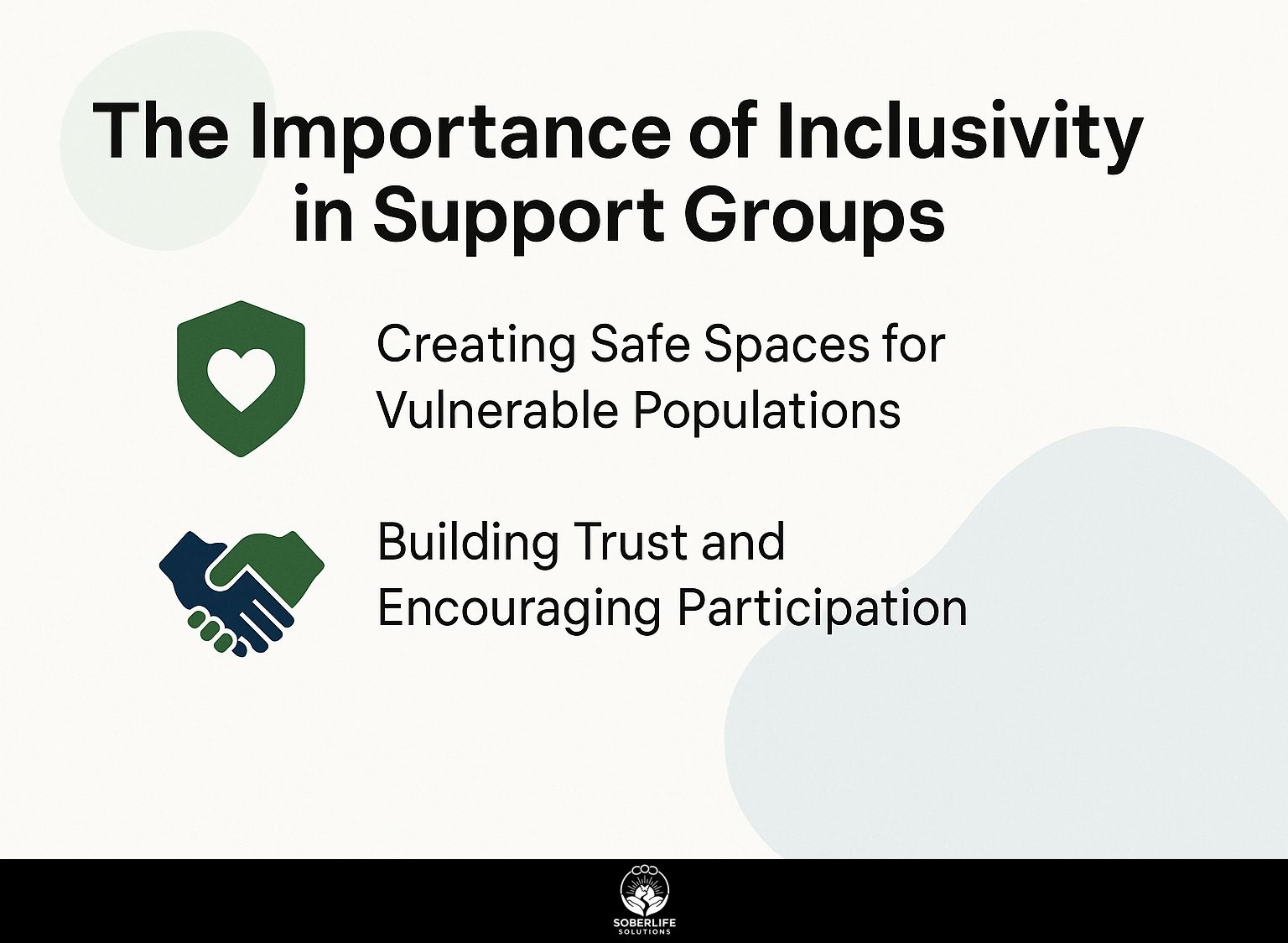
Creating support groups that are open to all is important so LGBTQ+ individuals can feel safe, accepted, and motivated to share their experiences without fear of judgment. To understand how these groups operate and the unique benefits they offer, explore our insights on LGBTQ+ Peer Support Groups: Specialized Community Support.
Creating Safe Spaces for Vulnerable Populations
Creating safe spaces within support groups involves establishing ground rules that promote respect, confidentiality, and emotional safety for all members.
To achieve this, start by collaboratively setting group norms that all members agree upon. Examples include guidelines for active listening, refraining from interrupting, and being mindful of language.
Change group leaders regularly to include various viewpoints in discussions. Including trauma-informed care principles is important; this means being aware of possible triggers and creating a space where members can share when they’re ready.
Regularly check in with participants to assess their comfort levels and adjust practices as needed.
Building Trust and Encouraging Participation
Creating trust in a group is important for encouraging genuine involvement, letting people take part completely in their healing processes.
To create trust, try starting conversations with personal stories or interesting facts to help everyone feel included.
Set up regular feedback sessions, so members can share their opinions and feelings about how the group works together.
By clearly talking about goals and expectations, facilitators create a feeling of safety.
Successful LGBTQ+ support groups often use these methods, leading to stronger bonds and a more welcoming atmosphere.
When groups use these methods often, they can make a welcoming place where everyone feels at ease to express themselves.
Benefits of LGBTQ+ Inclusive Alcohol Support Groups
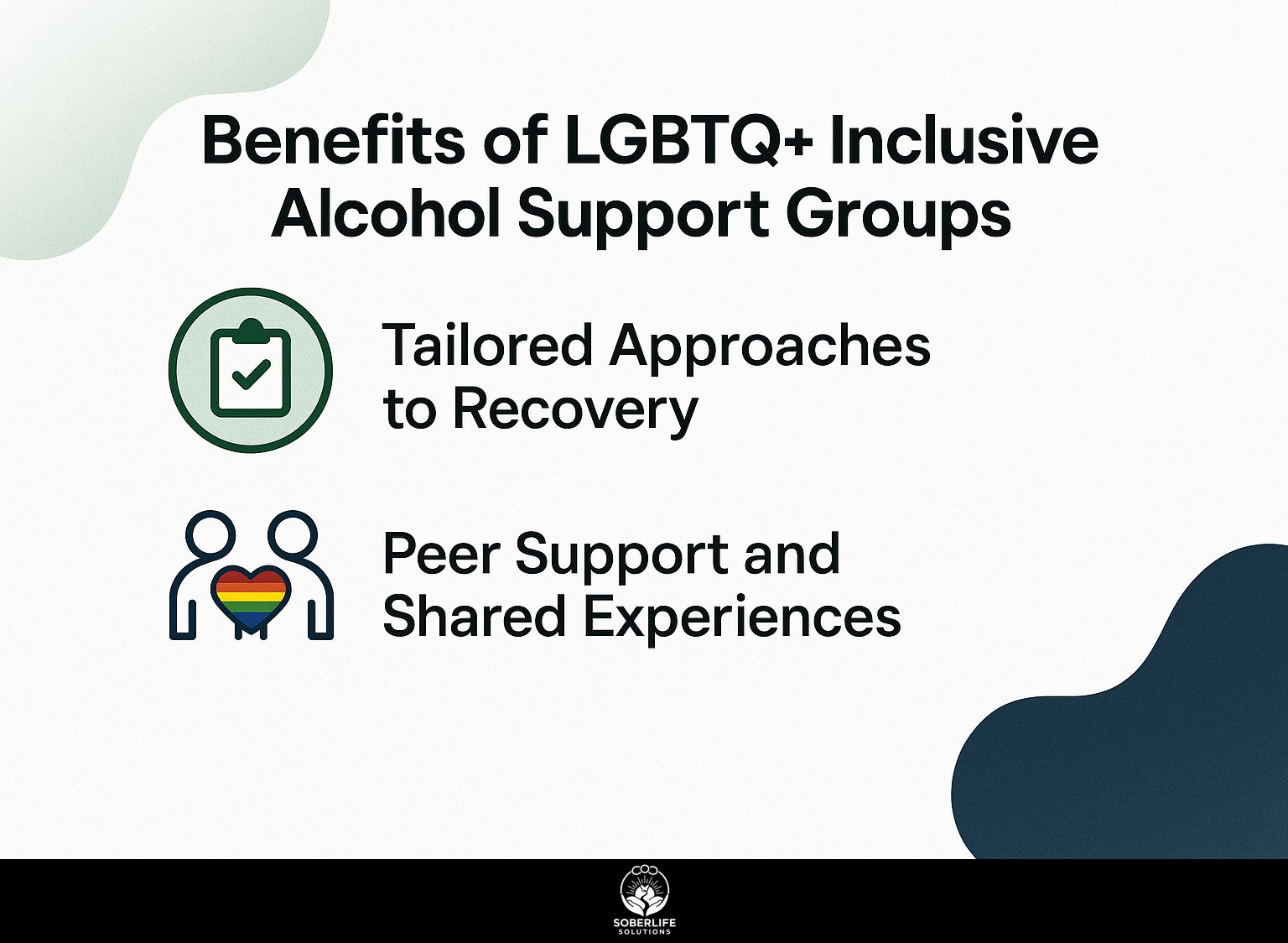
Alcohol support groups that welcome LGBTQ+ individuals offer several benefits, such as recovery techniques that consider the unique backgrounds of their members.
Tailored Approaches to Recovery
Recovery methods designed for LGBTQ+ individuals consider cultural aspects in alcohol treatment programs.
Successful strategies begin by creating personalized recovery plans based on each person’s background, likes, and experiences.
For example, intake assessments that include questions about LGBTQ+ identities can help offer care suited to individual needs. Joining LGBTQ+ support groups or seeing therapists who understand cultural issues can improve participation and build trust.
Treatment programs should also actively include affirming language and materials, ensuring clients feel represented. Working with local organizations that help LGBTQ+ people improves recovery choices and encourages connection and support during recovery.
Peer Support and Shared Experiences
Help from peers is important for LGBTQ+ recovery, as it provides people with shared experiences that encourage closeness and motivation during their healing.
Research indicates that individuals participating in peer support programs report a 30% higher rate of sustained recovery.
Organizations such as the LGBTQ+ National Help Center provide organized support groups that create spaces for people to share their personal experiences and ways to handle challenges. Joining these groups builds relationships and increases emotional resilience.
For example, a study showed that those engaged in peer support reported feeling 40% less isolated, underscoring the importance of these connections in the recovery process. The principles of peer support, discussed in the origins and impact of peer support, highlight why shared experiences are so valuable.
Strategies for Implementing Inclusive Practices
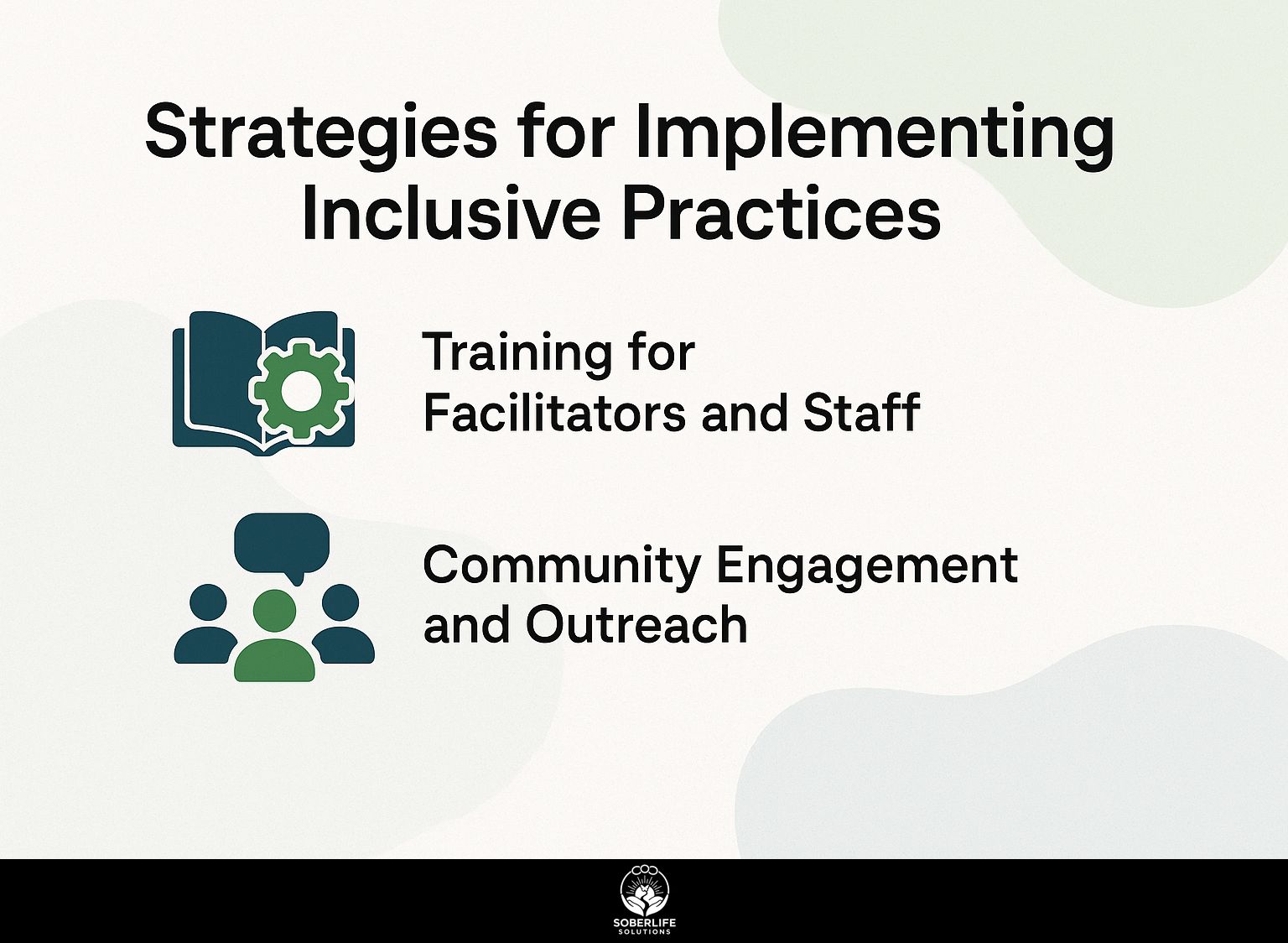
To make support groups more welcoming for everyone, we need careful planning, training, and regular involvement with the community to make sure they work well and are accessible to all.
Training for Facilitators and Staff
Training for facilitators and staff should include LGBTQ+ sensitivity training, promoting awareness of the specific needs of sexual and gender minority individuals.
For successful LGBTQ+ sensitivity training, use well-known models such as the Human Rights Campaign’s resources. These include webinars and workshops designed for various environments.
Using role-playing activities allows staff to practice handling real-life situations, which helps them become more empathetic and aware. Using resources from groups like GLSEN can help understand the difficulties experienced by LGBTQ+ youth.
Establishing ongoing training sessions will keep awareness current, ensuring staff are equipped to support individuals effectively.
Community Engagement and Outreach
Community engagement and outreach initiatives are essential for raising awareness about the availability of inclusive alcohol support services among LGBTQ+ individuals.
One effective strategy is to partner with local LGBTQ+ organizations to co-host events such as informational workshops or support groups. This can build trust and encourage participation.
Using social media platforms like Instagram and TikTok can spread your message-create interesting content that focuses on personal stories and provides resources. Running specific campaigns, like hashtag challenges, can encourage community participation and increase visibility.
Start these partnerships and campaigns in the next three months to expand our reach.
Frequently Asked Questions
What are LGBTQ+ inclusive alcohol support groups?
LGBTQ+ inclusive alcohol support groups are organizations and communities specifically designed to provide support and resources for individuals who identify as LGBTQ+ and struggle with alcohol addiction. These groups understand the specific difficulties and situations that LGBTQ+ people encounter. They offer a secure and welcoming place where individuals can ask for and get support.
Why are LGBTQ+ inclusive alcohol support groups important?
These support groups are important because they provide a safe space for LGBTQ+ individuals to receive help for alcohol addiction. People in the LGBTQ+ community often deal with unfair treatment and negative attitudes in regular support groups, which makes it hard for them to share openly and get the help they deserve. Inclusive groups address these issues and create a supportive and non-judgmental environment for LGBTQ+ individuals to receive help.
What are the benefits of joining an LGBTQ+ inclusive alcohol support group?
The benefits of joining these groups include being surrounded by individuals with similar experiences, receiving support from those who understand the unique challenges faced by LGBTQ+ individuals, and being able to openly discuss and process issues related to their identity and addiction. These groups also often provide resources and strategies for managing triggers and maintaining sobriety in a LGBTQ+ context.
Are these support groups only for individuals who identify as LGBTQ+?
No, these support groups are open to anyone who identifies as LGBTQ+ or is a supporter and ally of the community. Allies can gain by learning about the issues LGBTQ+ people face and how to offer help and empathy. These groups welcome individuals from all backgrounds and identities to create a welcoming and diverse community.
Do these support groups have any professional resources or guidance?
Many LGBTQ+ inclusive alcohol support groups have professional resources and guidance available, such as therapists, counselors, and addiction specialists. These professionals are trained to understand and address the unique needs and challenges faced by LGBTQ+ individuals. They can offer personal guidance and support to help members with their recovery.
How can I find an LGBTQ+ inclusive alcohol support group near me?
You can start by researching LGBTQ+ organizations and communities in your area that may offer support groups or resources for individuals struggling with alcohol addiction. You can also reach out to local mental health and addiction treatment centers to see if they offer LGBTQ+ inclusive support groups. Online directories and forums may also provide information on specific groups and their meeting times and locations.

